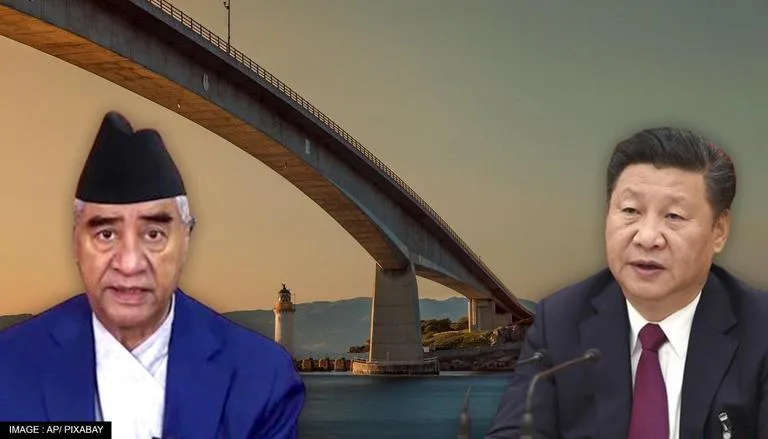In a major development, local media reports from Nepal have suggested that China’s sponsored Belt and Road Initiatives (BRI) would have acted as a “back door entry” for Beijing in imposing its economic hegemony on Kathmandu. According to documents of the Memorandum of Understanding (MoU) signed between China and Nepal on Belt and Road Initiatives (BRI) projects, Nepal-base media house, Khabarhub, highlighted, in a report, China’s concrete attempts to dominate Nepal’s economy with its currency and free trade provisions.
Notably, BRI, also known as One Belt One Road (OBOR), is a series of projects adopted by the Chinese government in 2013. It is a global “infrastructure development project” that invested in more than 70 countries across the globe. However, on several occasions, Western officials have argued it is a trap for the receiving country as it benefits China more than its hosts.
In 2017, Beijing reached its neighbouring nation and signed an agreement with Nepal. However, not a single project has been taken off till date. Also, neither side has released any documents related to the MoU. However, the documents accessed by Khabarhub, suggest that the Chinese government has attempted to impose its economic hegemony, conditions, and vested interest in Nepal in the name of Free Trade Connectivity.
According to the documents accessed and shared by Khabarhub, Clause III of Article II of the MoU cites Trade Connectivity saying that the two sides should complete the joint feasibility study of the China-Nepal Free Trade Agreement within the year a document was signed. Also, the clause categorically mentions that if the study found the agreement feasible, both sides will start negotiations on the FTA in order to open up markets and expand two-way trade, to achieve a win-win situation.
The Nepali media outlet underscored that the agreement was a clear gesture on the part of China that it is not only trying to monopolise and seize Nepal’s economy and to use its currency in Nepal, but “it is also trying to sell its goods through zero customs.”
The MoU also mentions that if either side intends to terminate this MOU they shall have to give written notice to the other side through a diplomatic channel at least three months prior to the expiration of the MOU.
Meanwhile, Political analyst Saroj Mishra told Khabarhub that the agreement documents exhibit that the paper signed by both Nepal and China on BRI is a clear gesture on part of China. He noted until and unless it is a very sensitive and security-related document, every Nepali citizen has the right to exercise the right to information. “If so, why is the government reluctant to provide the information?”, Mishra asked, raising concerns about the reasons that barred the Nepal government from making the MoU public.

